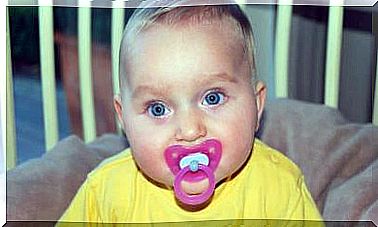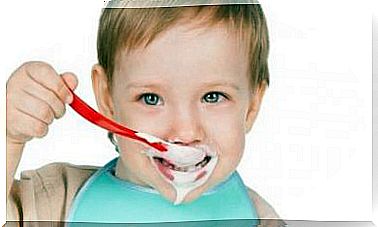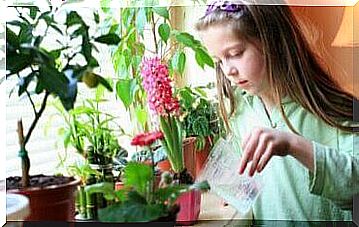Kissing, Comforting And Taking Care Of A Child Is Not Bad Raising, It Is Also Educating – Being Parents

In an interesting study on affective intelligence, it was shown that what most babies suffer from throughout the day is psychological pain. Much more than physical pain. This is undoubtedly a detail that deserves to be taken into account: the emotional suffering of children is linked to factors such as hunger, fear or feelings of insecurity.
These are instinctual factors that involve real discomfort, and it is something that each child will manifest in a particular and different way from others. There will be babies who are more demanding than others and therefore, as mothers, we must understand the particular reality of each child knowing that the one who meets the needs does not bring up badly. Providing security and strategies is education.
We invite you to explore this subject, which sometimes raises some controversy.
Comfort, the art of understanding needs
If a friend of ours is crying, we won’t let him or her until they run out. If our partner, sister or father is crying, we don’t leave them in a room until it passes. Why should we do this to our children?
Comforting is the exceptional art of knowing how to understand the needs and knowing how to deploy appropriate strategies to heal these psychic or emotional pains. That is why sometimes it is not enough to say “calm down, it’s nothing”. For a young child, the most comforting thing is the physical contact and that tone of voice able to speak calmly and close.
These are the little things that make real imprints in a maturing baby’s brain where any stimuli, as well as anything missing, will determine its further development. Let’s see other aspects of this.
The wisdom of “raising well”
Terms are important in our language, but sometimes the most popular expressions always see pathological behaviors where there are only natural processes. It is quite possible, for example, that you too have seen yourself in the position of having to endure comments from friends or family when hugging your children to ease their tears or anger.
“You bring it up badly” they tell us. We don’t say anything knowing it isn’t, because we understand that positive reinforcement at the right time prevents crises, reduces stress, and makes our children feel safer to explore their surroundings at their own pace. .
- The wisdom of “raising well” knows that the consequences of prolonged and unheard crying bring unwanted effects. Neurologically, this causes stress, and high cortisol levels alter neurotransmitter chemistry, heighten fear, and increase the need for attention.
- The wisdom of “raising well” knows that consoling, embracing and “being present” improves the bond with our children. Our children will need this secure attachment for their first three years. This is a stage where your vital needs are usually simple but essential: safety, affection, recognition and taking advantage of enriching stimuli to promote neural connectivity.
A child who is left to cry until exhaustion or who receives neither hugs nor caresses is a baby who constructs a somewhat hostile idea of the world, a scenario where he will “always expect things”, a world against which he must defend. sometimes angrily, or expect reinforcements to be with.
It is not the right thing to do.

Foster emotional development to help grow taller
Emotional education doesn’t start when a child already has communication skills, when we need to set rules, set limits, and negotiate rules. An eight month old baby who pulls our hair when he is angry is someone who seeks to channel his anger and frustration.
- Emotional education begins the first day we leave our baby in the crib after arriving at the hospital. After giving birth We cannot forget that the first emotional anchor occurs at birth, with that first skin-to-skin contact between baby and mother.
- Breastfeeding is a great pillar for continuing to forge bonds of security, serenity and well-being. Later, the art of respectfully consoling will allow him to continue to grow in safety.
- Dealing with negative reactions doesn’t mean raising badly either. The two-year-old child who throws a toy on the ground with rage or who scratches his brother or his mother hides an emotion that goes beyond him and that he must know how to channel, understand and manage.
The task of understanding and working with emotions is something that requires patience and intuition, something that we should never ignore “just because they are small”. The little things of today can become big chasms tomorrow, so you have to be careful, feed them with positive emotions putting into practice the art of well-being.









